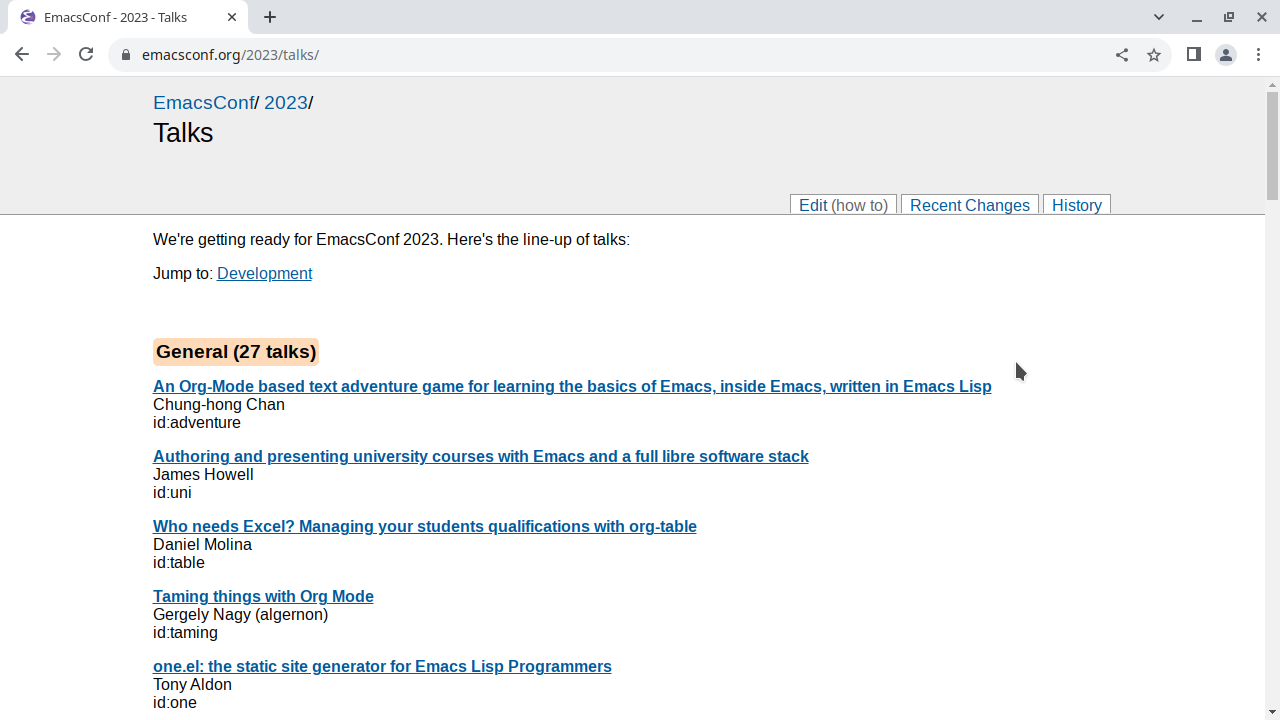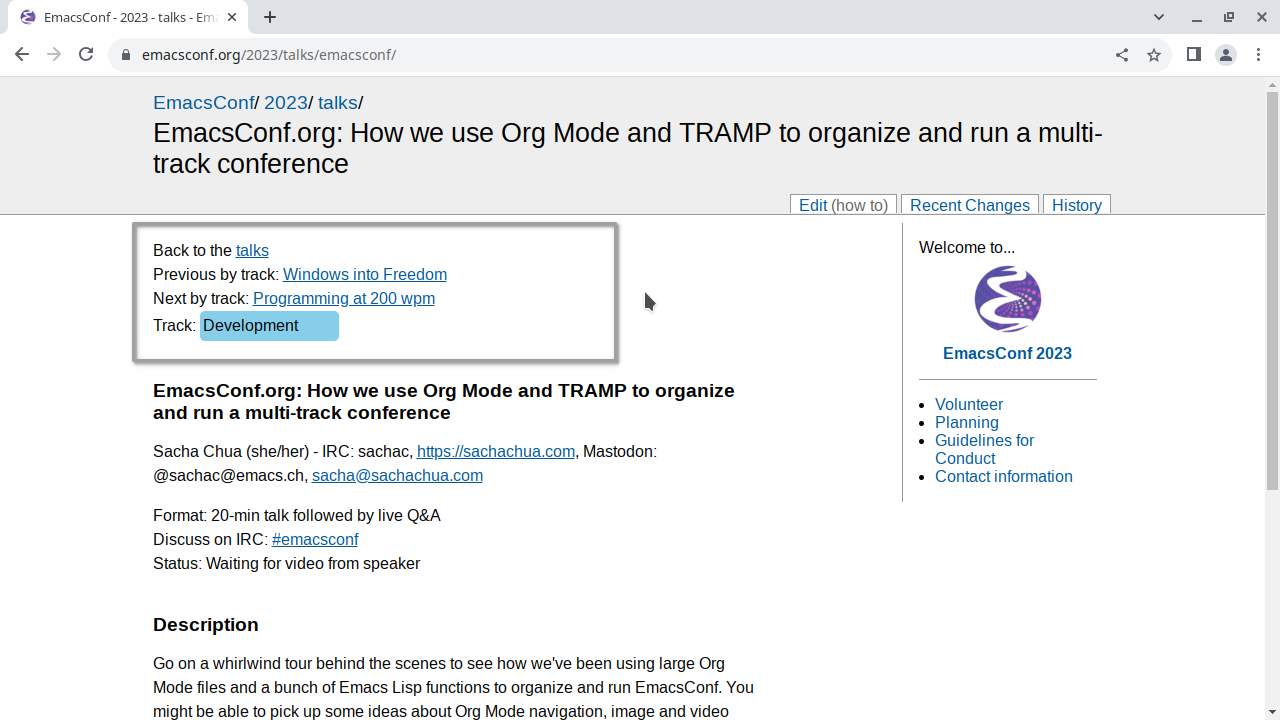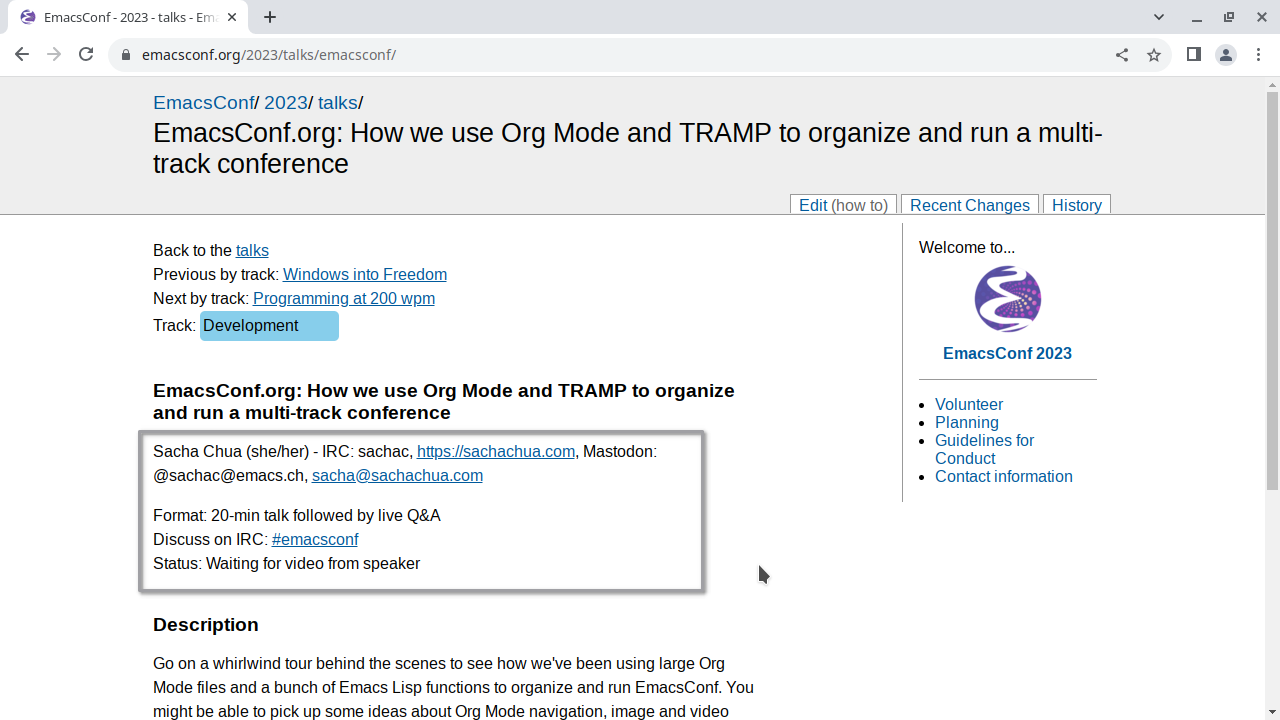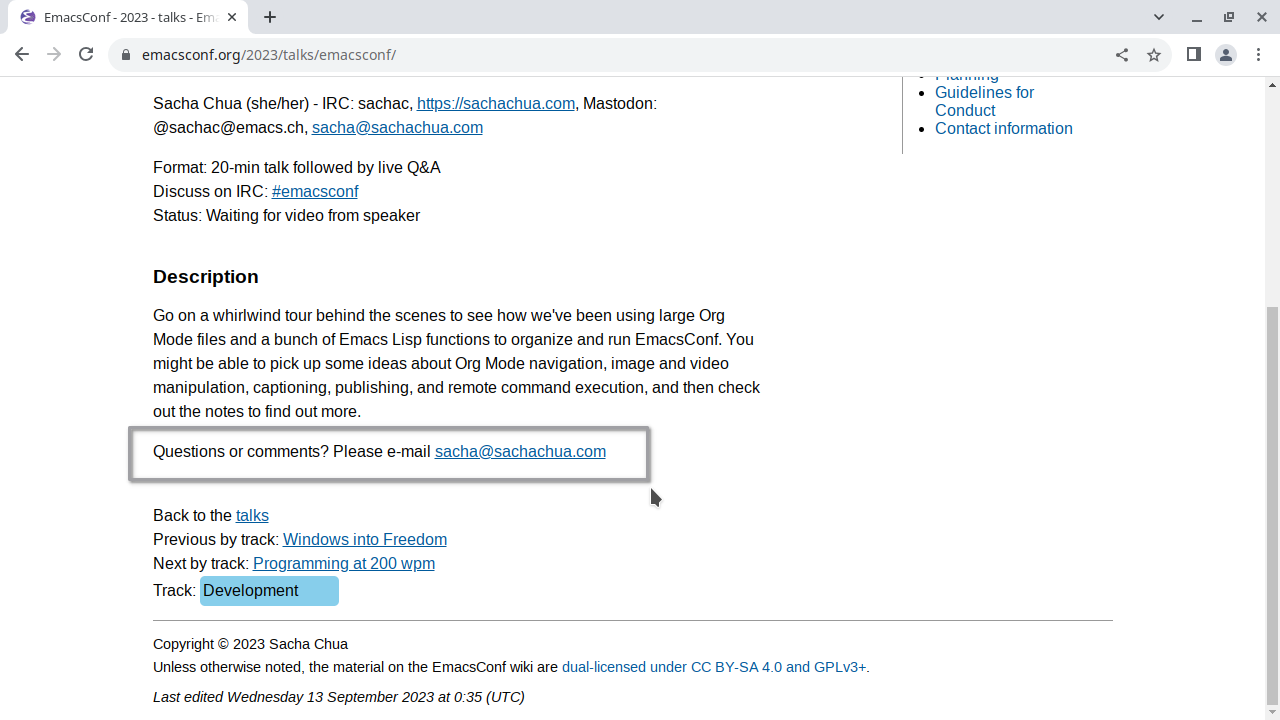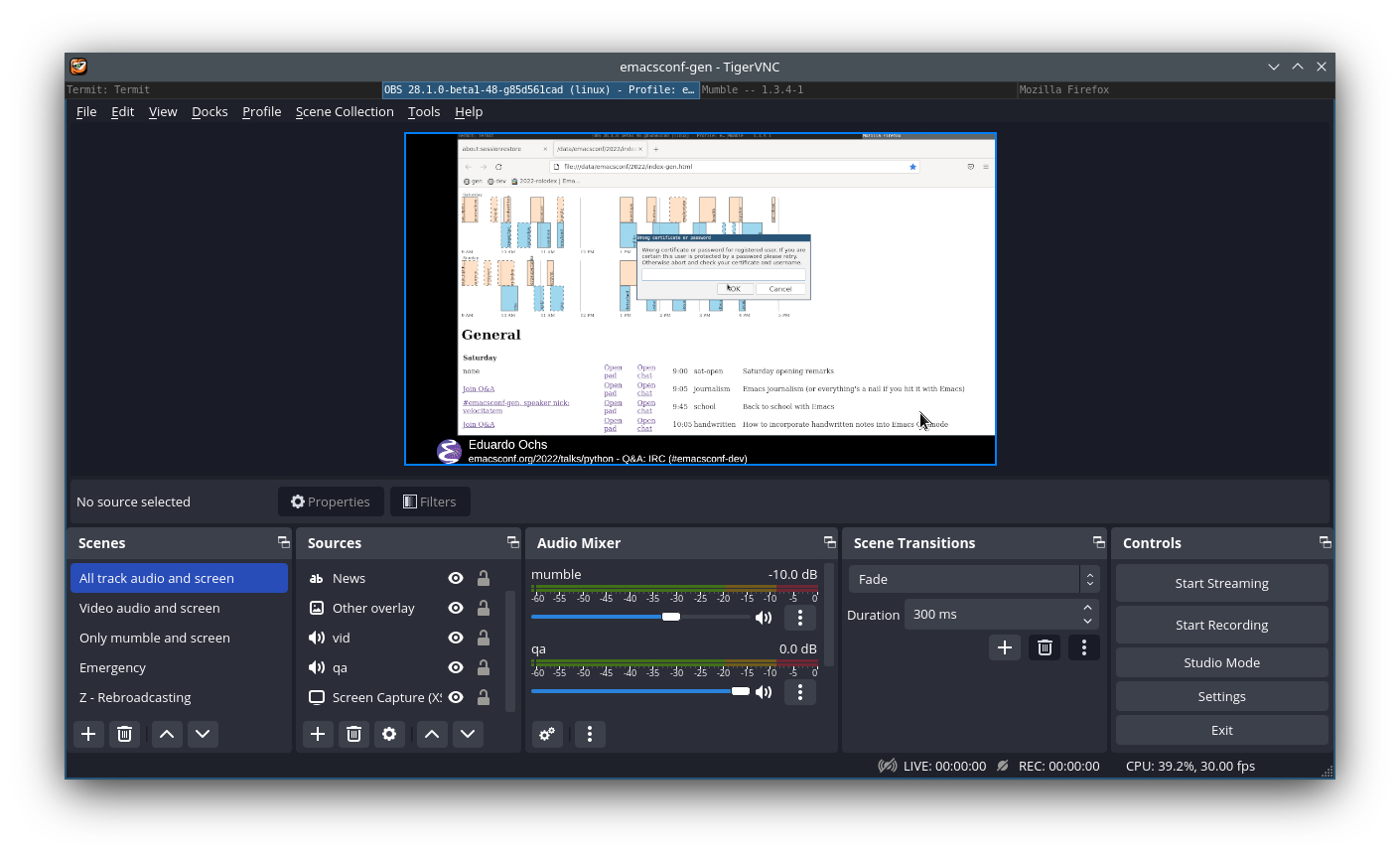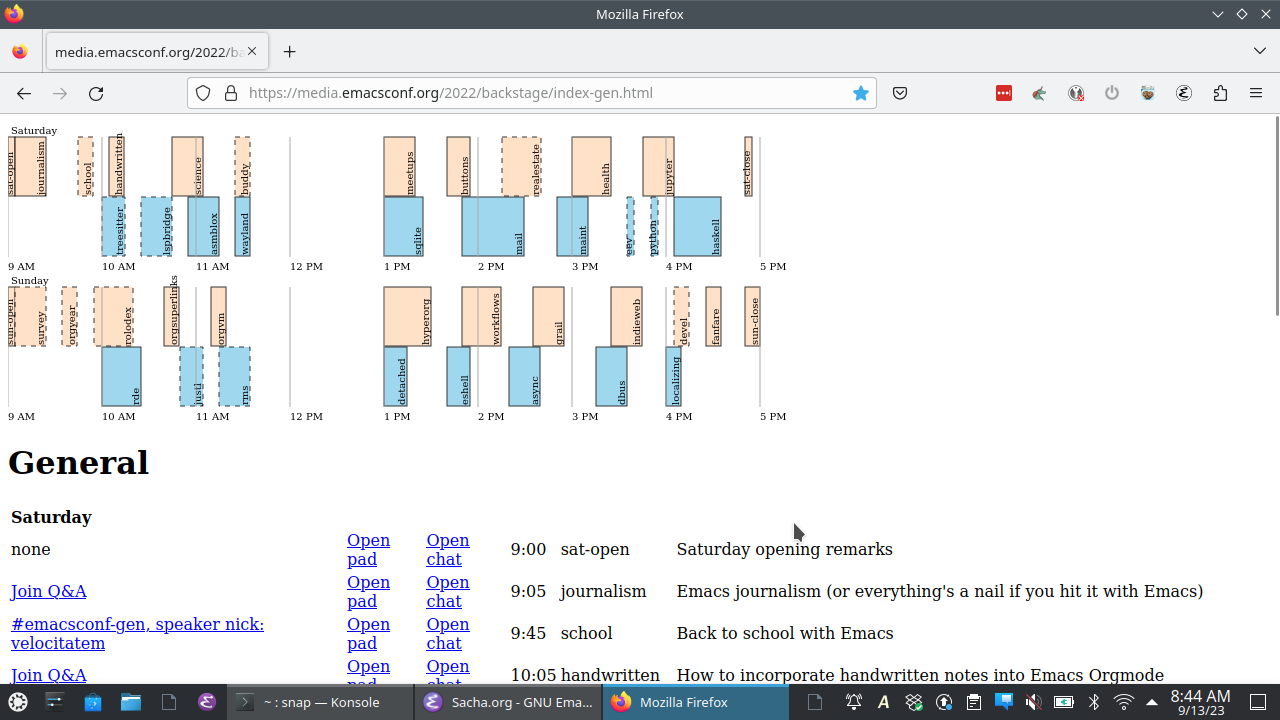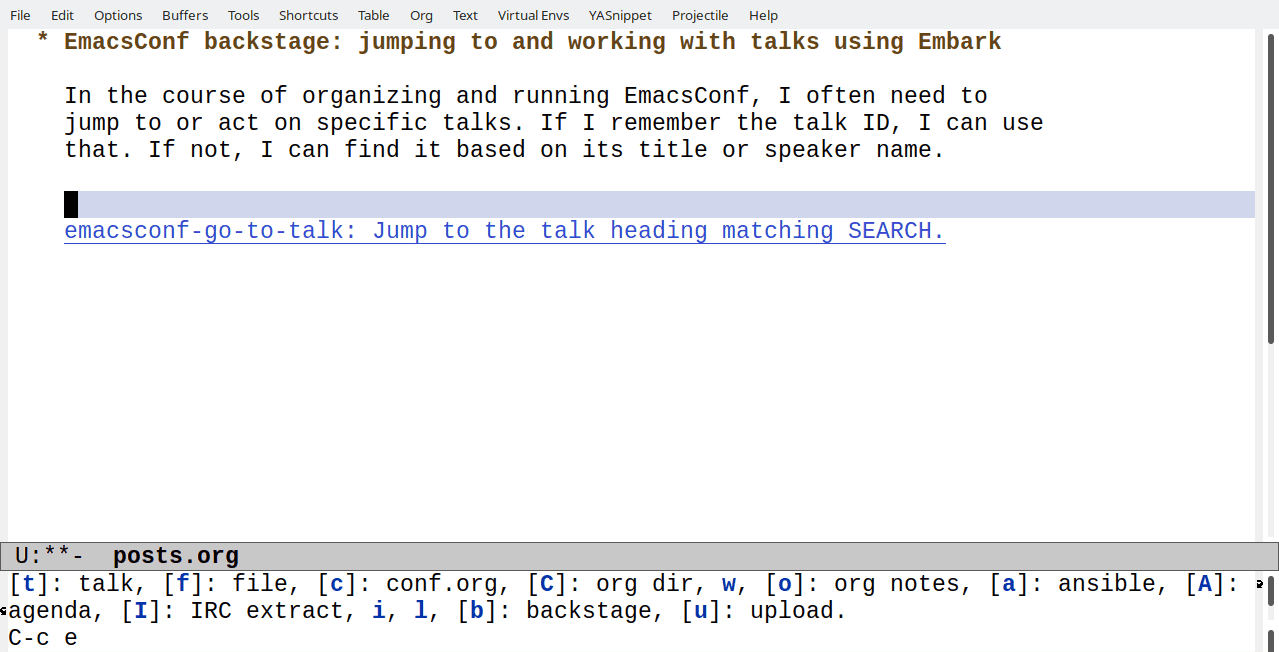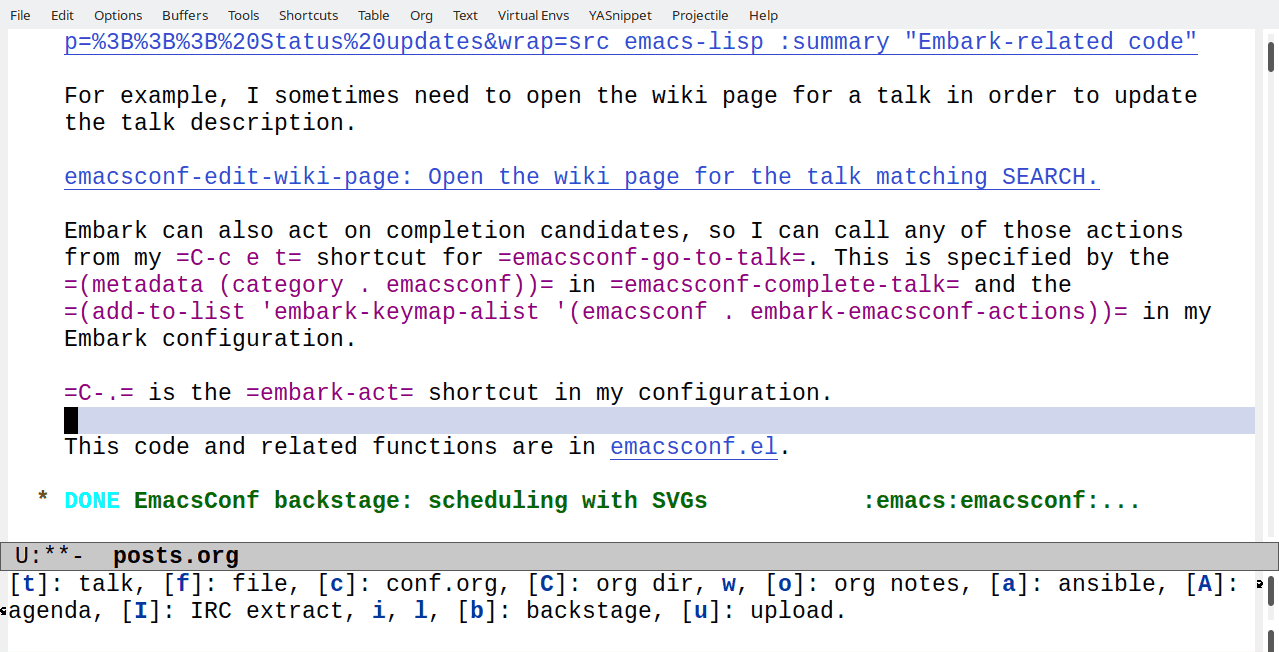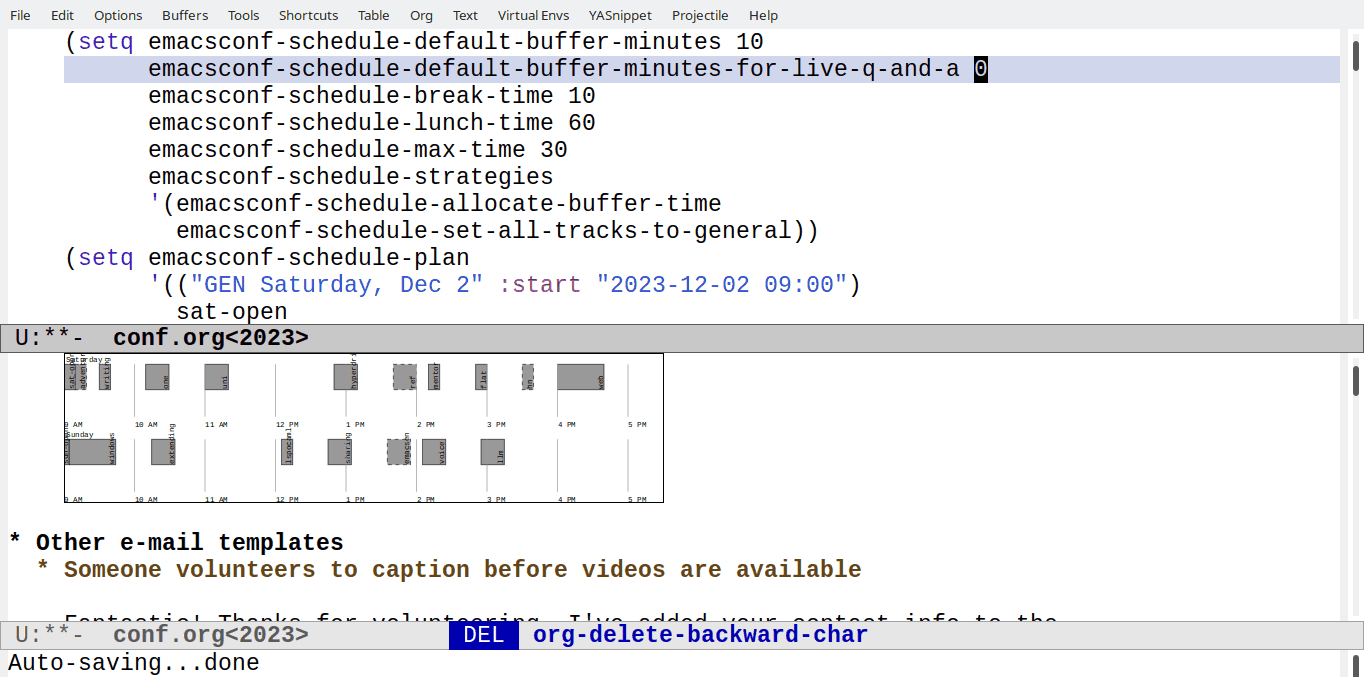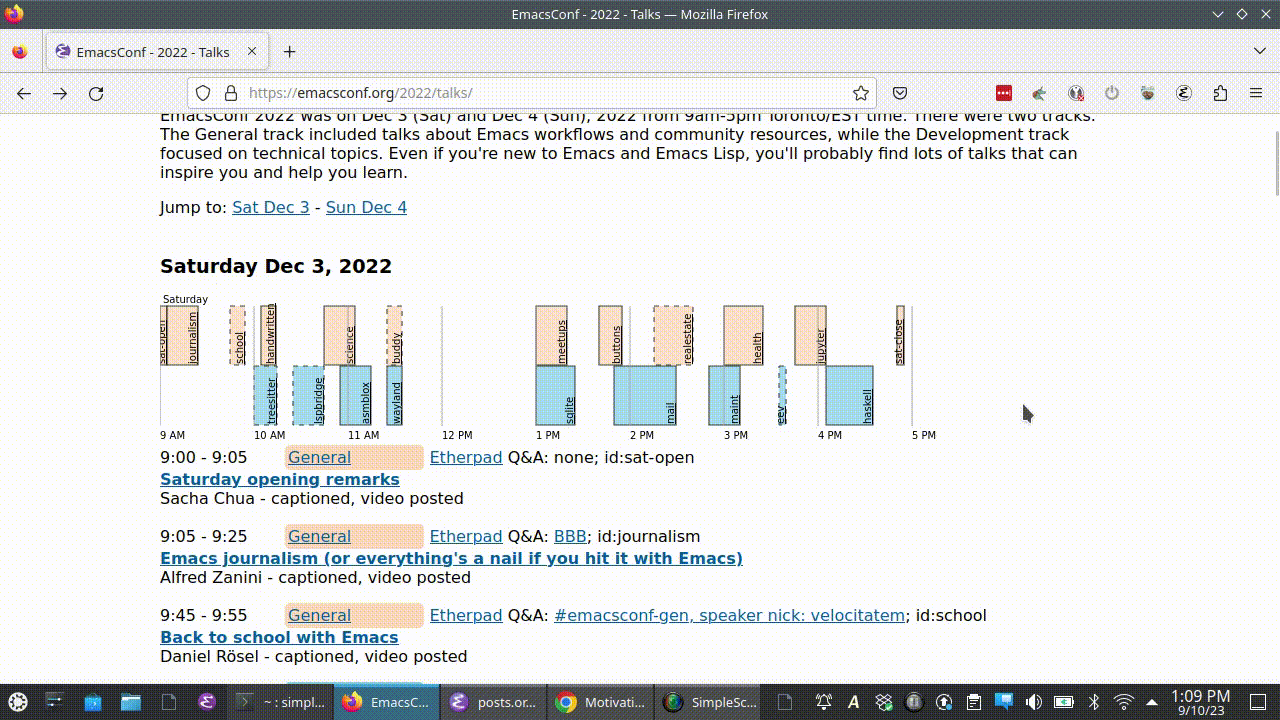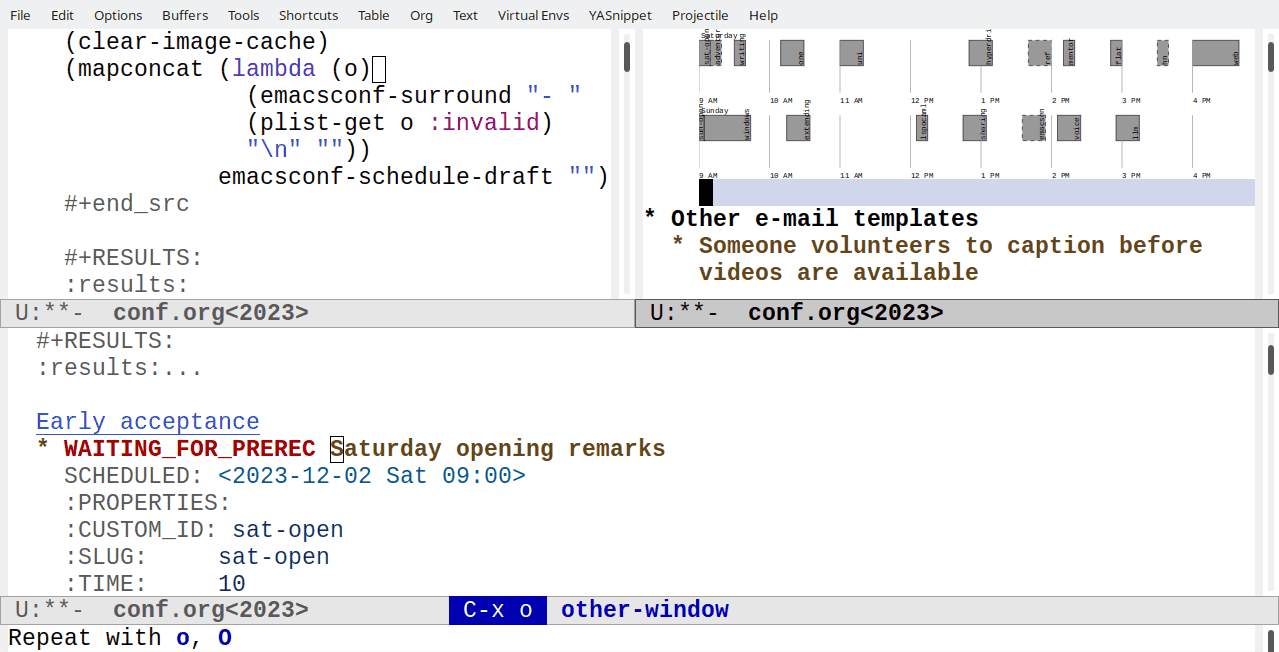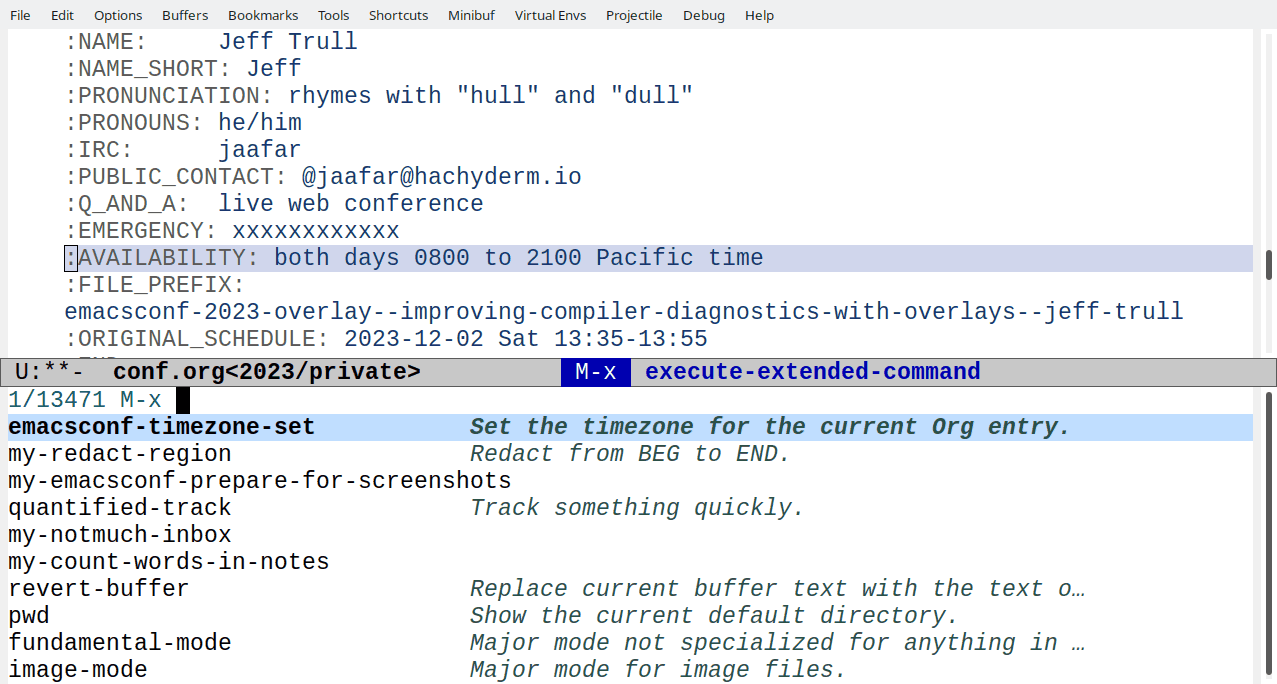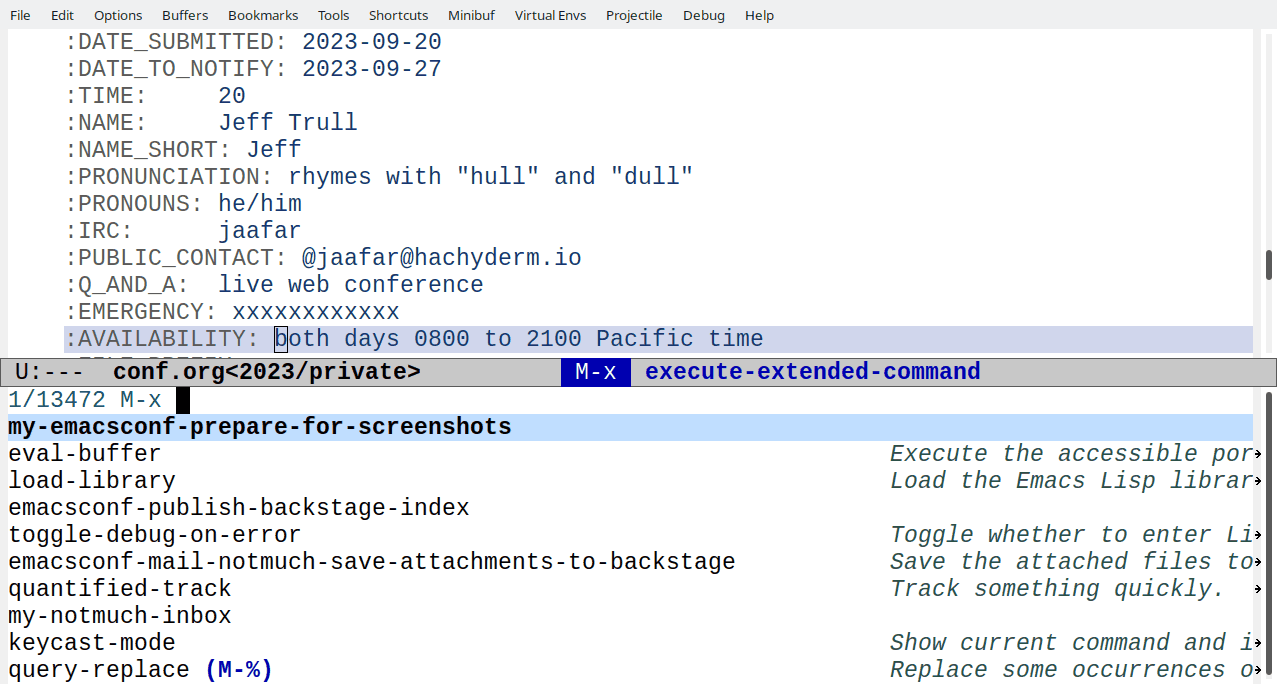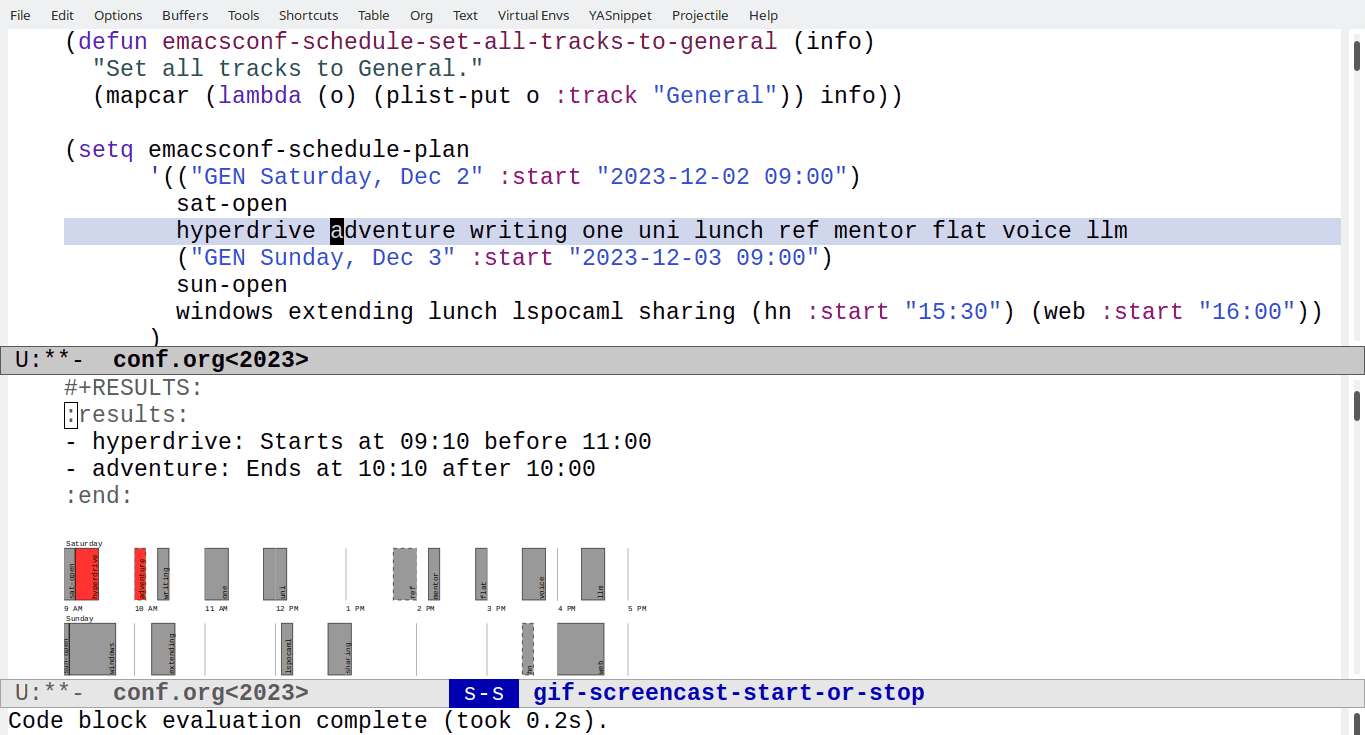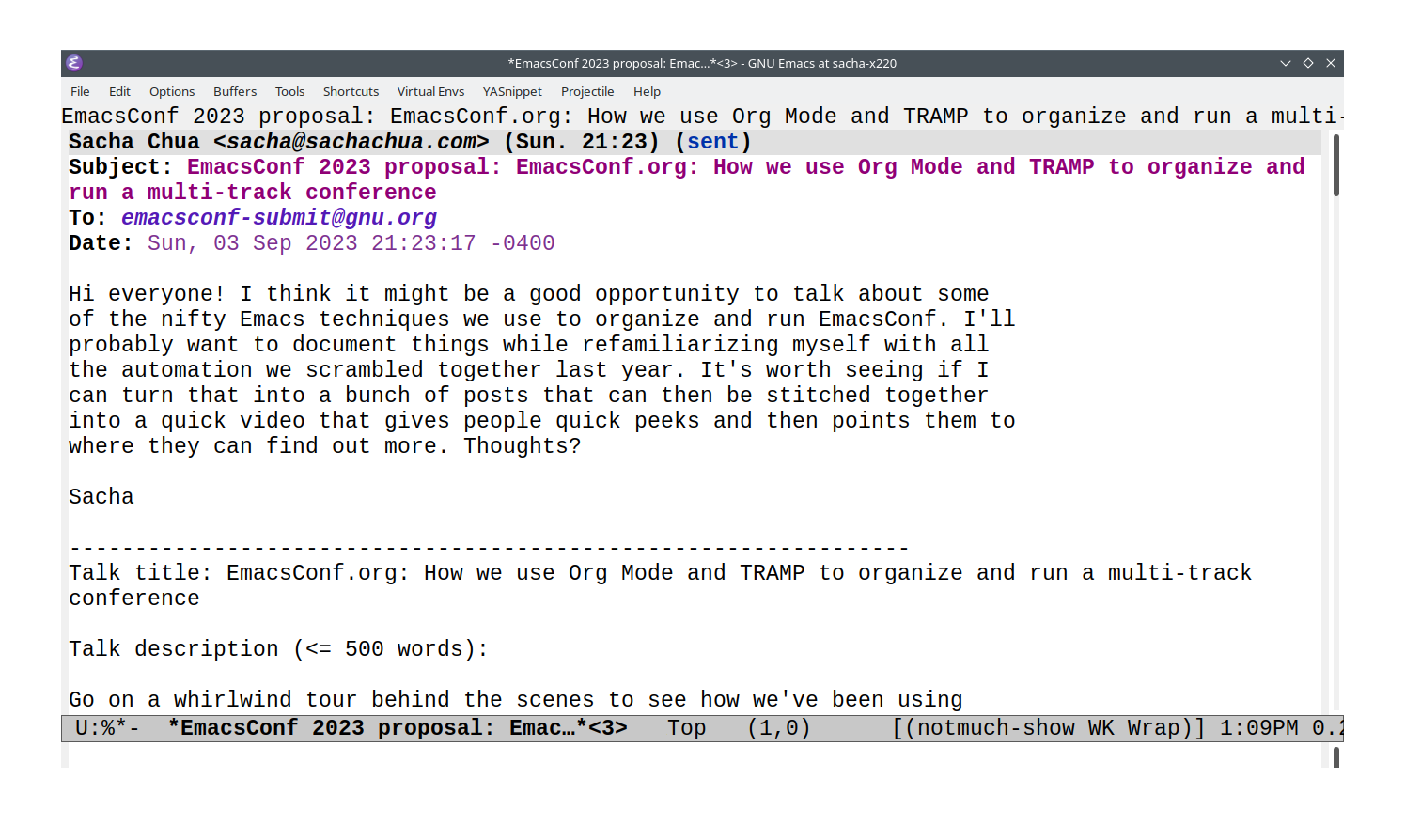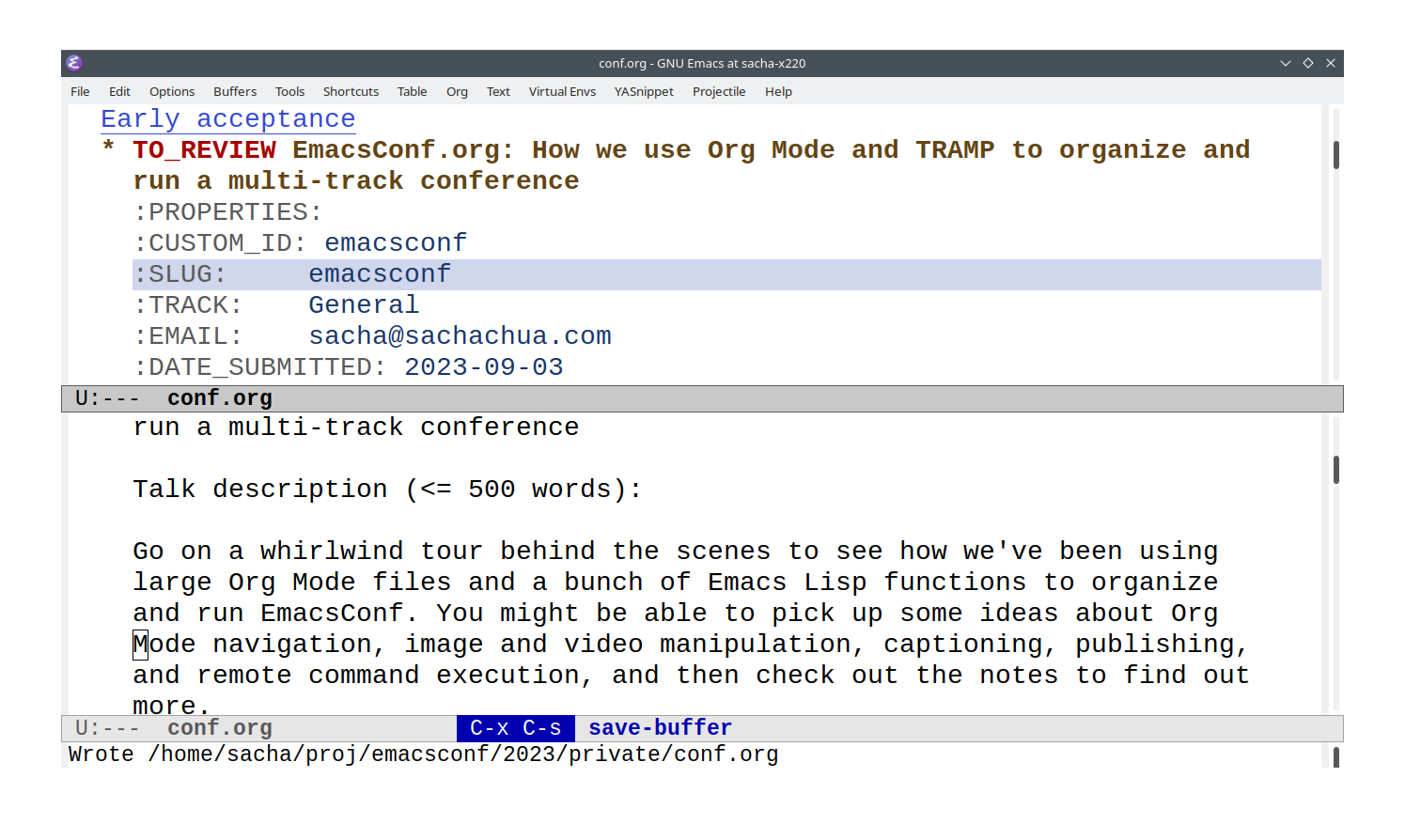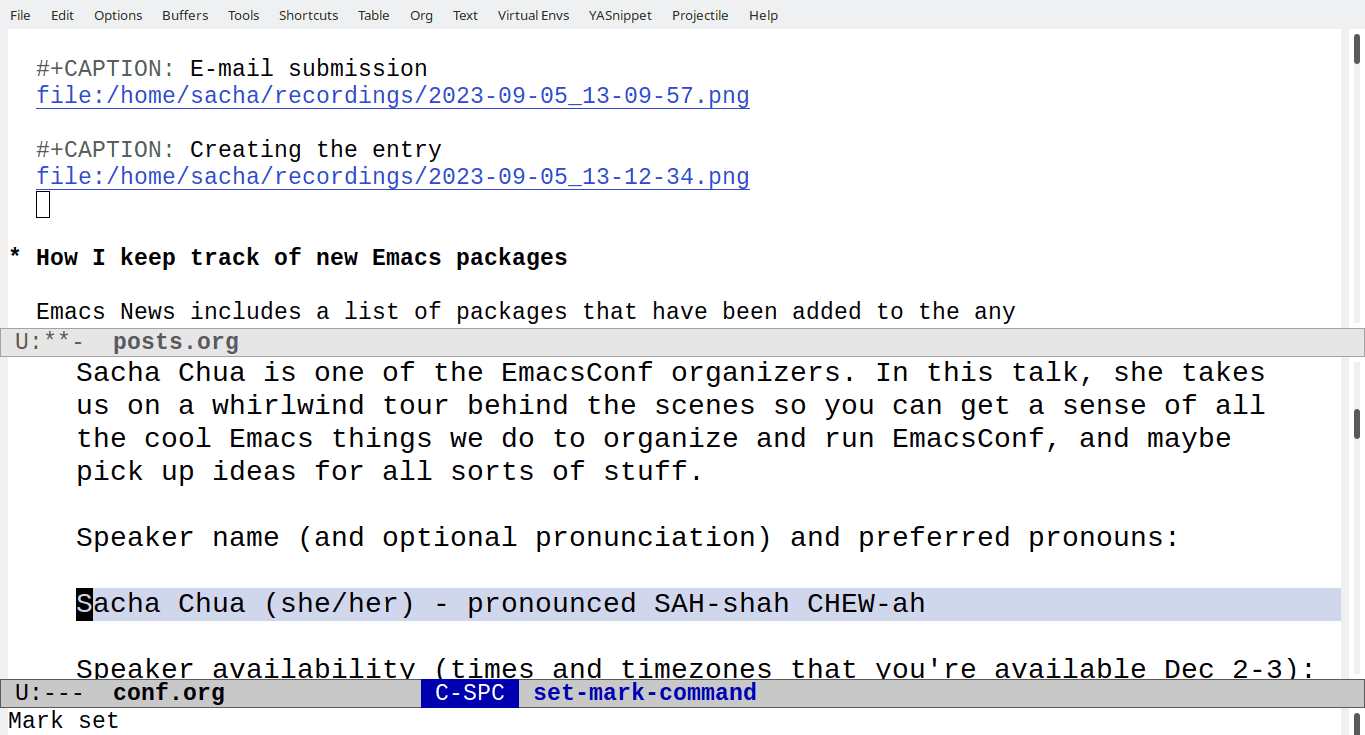#EmacsConf backstage: using e-mail templates for confirmations and acceptances
| emacsconf, emacsWe send a number of e-mails to speakers while coordinating EmacsConf. Here's a rough list of the standard e-mails:
- confirmation that we've received their proposal and that we'll review it over the following week
- acceptance
- coordination with related talks
- checking tentative schedule to see if people have any requests
- instructions for uploading files
- instructions for accessing the backstage area
- confirmation that we've received their uploaded video
- captions for review
- miscellaneous todos
- any large schedule changes
- schedule confirmation and check-in instructions
- thanks and resources
- thanks and follow-up questions
Sending e-mails from within Emacs makes it super-easy to automate, of course.
I started off with putting e-mail templates in our public organizers' notebook because that made it easy to link to the drafts when asking other volunteers for feedback. As the templates settle down, I've been gradually moving some of them into our emacsconf-mail library so that I don't need to copy the template into each year's notebook.
The e-mail templates use the same template functions we use to make the wiki pages. Here's the function for confirming that we've received a submission and letting the speaker know when to expect comments:
emacsconf-mail-review: Let the speaker know we’ve received their proposal.
(defun emacsconf-mail-review (talk) "Let the speaker know we've received their proposal." (interactive (list (emacsconf-complete-talk-info))) (emacsconf-mail-prepare '(:subject "${conf-name} ${year} review: ${title}" :cc "emacsconf-submit@gnu.org" :reply-to "emacsconf-submit@gnu.org, ${email}, ${user-email}" :mail-followup-to "emacsconf-submit@gnu.org, ${email}, ${user-email}" :body " Hi, ${speakers-short}! Thanks for submitting your proposal! (ZZZ TODO: feedback) We'll wait a week (~ ${notification-date}) in case the other volunteers want to chime in regarding your talk. =) ${signature} ") (plist-get talk :email) (list :user-email user-mail-address :signature user-full-name :title (plist-get talk :title) :email (plist-get talk :email) :conf-name emacsconf-name :speakers-short (plist-get talk :speakers-short) :year emacsconf-year :notification-date (plist-get talk :date-to-notify))))
I recently extended emacsconf-mail-prepare so that it can insert the
template into a reply instead of always starting a new message. This
allows the messages to be properly threaded in the emacsconf-submit
list archives, which makes it easier to verify that all the
submissions have been acknowledged.
emacsconf-mail-prepare: Prepare the e-mail following TEMPLATE. Send it to EMAIL.
(defun emacsconf-mail-prepare (template email attrs) "Prepare the e-mail following TEMPLATE. Send it to EMAIL. Use ATTRS to fill in the template. If `emacsconf-mail-batch-test' is non-nil, put the message in that buffer instead." (let ((fields '((:reply-to "Reply-To") (:mail-followup-to "Mail-Followup-To") (:cc "Cc")))) (if emacsconf-mail-batch-test (emacsconf-mail-prepare-for-batch-test template email attrs fields) ;; prepare to send the mail (if (and (derived-mode-p 'message-mode) (string-match "unsent mail" (buffer-name))) ;; add to headers (emacsconf-mail-update-reply-headers template email attrs fields) ;; compose a new message (compose-mail email (emacsconf-replace-plist-in-string attrs (or (plist-get template :subject) "")) (seq-keep (lambda (field) (when (plist-get template (car field)) (cons (cadr field) (emacsconf-replace-plist-in-string attrs (plist-get template (car field)))))) fields))) (message-sort-headers) (message-goto-body) (save-excursion (insert (string-trim (emacsconf-replace-plist-in-string attrs (plist-get template :body))) "\n\n") (goto-char (point-min)) (emacsconf-mail-merge-wrap)) (when (plist-get template :log-note) (mapc (lambda (talk) (emacsconf-mail-log-message-when-sent talk (plist-get template :log-note))) (cdr group))))))
There's a little function that I can add to message-send-hook to
prevent me from sending a message if it still has ZZZ in it.
emacsconf-mail-check-for-zzz-before-sending: Throw an error if the ZZZ todo marker is still in the message.
(defun emacsconf-mail-check-for-zzz-before-sending () "Throw an error if the ZZZ todo marker is still in the message. Good for adding to `message-send-hook'." (save-excursion (goto-char (point-min)) (when (re-search-forward "ZZZ" nil t) (unless (yes-or-no-p "ZZZ marker found. Send anyway? ") (error "ZZZ marker found.")))))
Here's the function for sending an acceptance letter:
emacsconf-mail-accept-talk: Send acceptance letter.
(defun emacsconf-mail-accept-talk (talk) "Send acceptance letter." (interactive (list (emacsconf-complete-talk-info))) (emacsconf-mail-prepare '(:subject "${conf-name} ${year} acceptance: ${title}" :cc "emacsconf-submit@gnu.org" :slugs nil :reply-to "emacsconf-submit@gnu.org, ${email}, ${user-email}" :mail-followup-to "emacsconf-submit@gnu.org, ${email}, ${user-email}" :body " Hi, ${speakers-short}! Looks like all systems are a go for your talk. Thanks for proposing it! Your talk page is now at ${url} . Please feel free to update it or e-mail us if you'd like help with any changes.${fill} If you want to get started on your talk early, we have some instructions at ${base}${year}/prepare/ that might help. We strongly encourage speakers to prepare a talk video by ${video-target-date} in order to reduce technical risks and make things flow more smoothly. Plus, we might be able to get it captioned by volunteers, just like the talks last year. We'll save ${time} minutes for your talk, not including time for Q&A. Don't sweat it if you're a few minutes over or under. If it looks like a much shorter or longer talk once you start getting into it, let us know and we might be able to adjust.${wrap} I'll follow up with the specific schedule for your talk once things settle down. In the meantime, please let us know if you have any questions or if there's anything we can do to help out! ${signature}" :function emacsconf-mail-accept-talk :log-note "accepted talk") (plist-get talk :email) (list :base emacsconf-base-url :user-email user-mail-address :year emacsconf-year :signature user-full-name :conf-name emacsconf-name :title (plist-get talk :title) :email (plist-get talk :email) :time (plist-get talk :time) :speakers-short (plist-get talk :speakers-short) :url (concat emacsconf-base-url (plist-get talk :url)) :video-target-date emacsconf-video-target-date)))
We send confirmations and acceptances one at a time. Other e-mails are sent to all the speakers and it's easier to draft them in a batch. I'll cover that kind of mail merge in a separate post.

